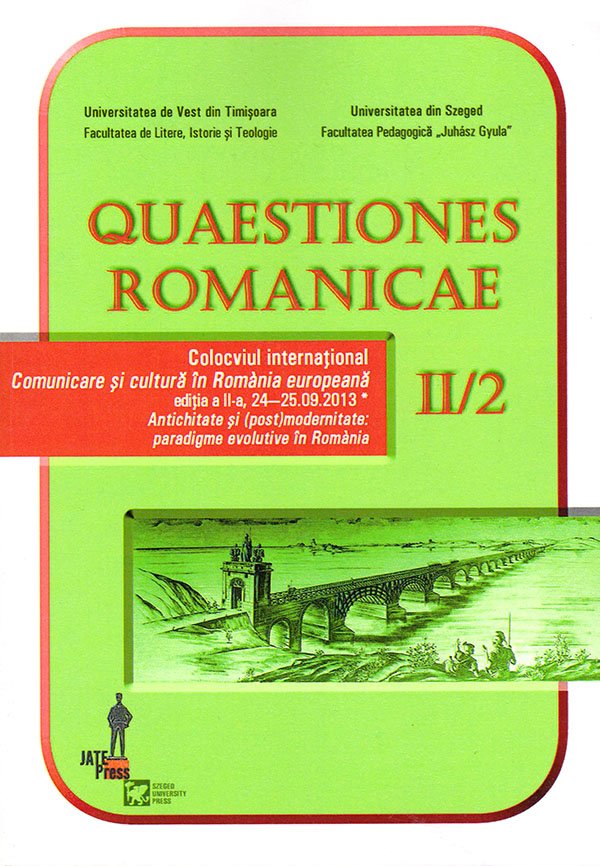Homage to Sextus Propertius – La (pe) marginea traducerii
Abstract: (Homage to Sextus Propertius – at (on) the edge of translation) "The artist is always beginning. Any work of art which is not a beginning, an invention, a discovery is of little worth”[1] expresses the principle that Ezra Pound has followed not only in his poetry, but also in his translations, and that was to explore, to discover, to reinvent, to find a new iter. Through his original approach to the Propertian text, according to his poetic faith, leaving aside the literal translation, Pound has initiated what will be called “interpretive translation”. The present study aims to prove through comparative analysis of o Propertian poem and its translation by Ezra Pound, that his “marginalization” as a translator from Latin has been, in fact, a milestone in the (r)evolution of the translation process.
Keywords: translation, fidelity, rendition, innovation, boundaries.
Rezumat: "The artist is always beginning. Any work of art which is not a beginning, an invention, a discovery is of little worth”1 . Cuvintele citate concentreazǎ crezul pe care Ezra Pound l-a urmat, nu doar în poezie, dar şi în traducere: acela de a explora, de a descoperi, de a reinventa, de a afla un nou iter. Apropiindu-se de textul properţian într-un mod original, conform crezului sǎu poetic, renunţând la traducerea literalǎ, Pound a iniţiat ceea ce se va numi “traducere creativǎ”. Prezenta lucrare urmǎreşte sǎ dovedeascǎ, prin analiza comparativǎ a unui poem properţian cu traducerea acestuia de cǎtre Ezra Pound cǎ “marginalizarea” acestuia ca traducǎtor din limba latinǎ, a constituit un moment – în cele din urmǎ constructiv - în (re)evoluţia actului de traducere.
Cuvinte cheie: traducere, fidelitate, interpretare, creativ, limitǎ.
